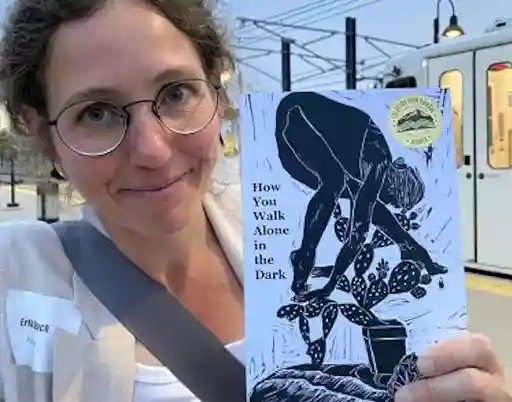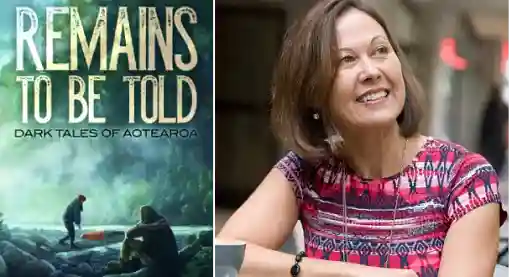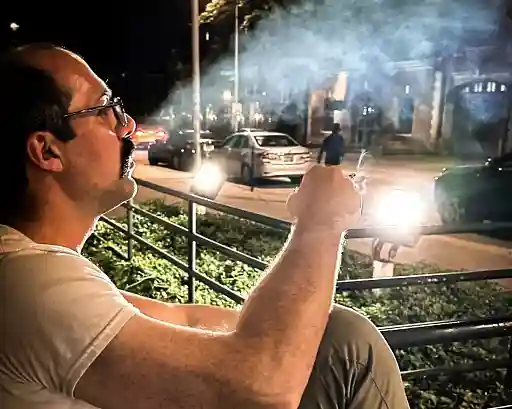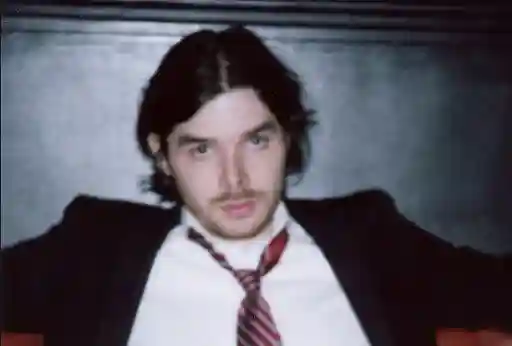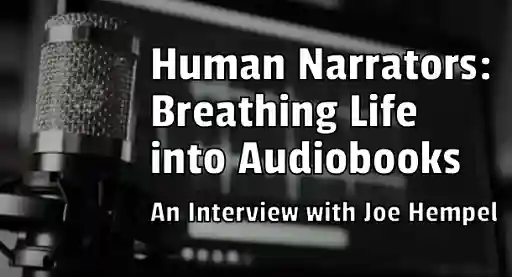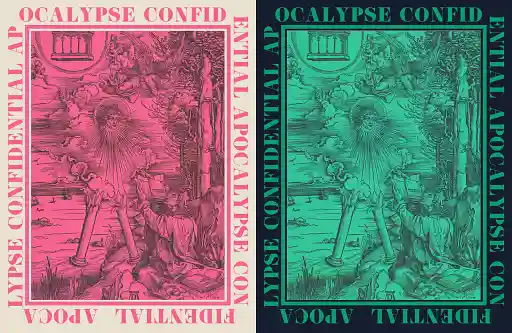Photo Credit: Shane Leonard
Read part one HERE
Aspiring writers are looking for a magical bullet. They pour over how-to books, clickbait articles, random blogs, searching for that one thing—confirmation that they're doing this thing that pulls them away from friends, family, primetime television, and the internet right.
They're hoping this magical bullet will strike the heart of their own uncertainty, their own insecurity in this endeavor. They take on too much advice, try tactics that contradict one another, drive themselves crazy looking for blacks and whites in a field of gray.
Often, they don't find the magical bullet. And they struggle to tell a story, find a voice, sell a piece of work. They struggle to find where they fit into this thing they feel they have to do.
New York Times Bestselling author Joe Hill knows this.
Before the shelf full of awards, before the adaptations, before the accolades, Hill was just a guy who'd written four novels no one would touch, writing short stories that didn't work; a young guy who knew he wanted to be a writer but, in weaker moments, didn't know how, or where to start.
Until he did. And he wrote stories like "Pop Art", compiled collections like 20th Century Ghosts, produced novels like Horns and NOS4A2, began the award-winning awesomeness that was the Locke & Key comic series he produced with artist Gabriel Rodriguez.
In Part Two of my sprawling conversation with Joe Hill, we discuss finding your voice, the horrors of parenting (in fiction), the best writing advice you'll never get, how his new novel The Fireman takes its cue from Harry Potter (and echoes The Stand), what you should and should not be reading when writing, and the worst rejection in the world.
You said in another interview that mothers in fiction always tend to be these parental Mary Sues. Why do you think that is? Is it because, we as writers, love our mommies? Why can't they be very flawed characters with inner lives?
If you get a mother in fiction, she's usually either beating her child with a coat hanger, or she's waiting to die tragically with some inspirational words before immediately ascending to heaven because her whole life has been dedicated to cookies, providing wise advice, and this sort of whole erasure of any personality beyond a parental role.
I think that real life parenting is a much more complicated deal. A lot of mothers long to have professional satisfaction, and a romantic life, and have intellectual interests. You love your kids and dedicate time to them, but this desire for some things for yourself is always there as a sort-of tug-of-war in your heart. And, traditionally, fathers haven't had to deal with that so much because they go off to work and then afterwards go off to the golf course for 18-holes with their buds.
In any event, it's terrific that that's changed and dads are a lot more hands-on, but I do think it's important if you're gonna have a mother or a father in a novel that you try to see the full picture, to try to imagine who they wanted to be before they had kids. Who are they in their dream life when parenting magically becomes easy?
As a father myself, I always kinda wonder with those kind of stories....With a mother in fiction, or just a mother in general, as you know with your three kids, we always have that fear if we're doing it right—
Yeah!
—and what kind of damage are we setting up because WE still bitch about our parents over some slight they did when we were 13. But, these parents have these inner lives, now they have these children that they created, and they have these dreams that, depending on the situation and the context, that they put things on hold for or just kinda let go. I always kinda wonder if the true horror is, what if I gave [my dreams] up, but all I'm doing now is fucking THIS up?
[laughs] Exactly! Exactly! [laughs] I'm doing it wrong! I gave up all my dreams to do THIS badly!
I mean, with NOS4A2, my daughter was two, and I was looking at Vic and going, "Oh my God, yeah!" I mean, I'm not being chased by Charlie Manx, but I can totally appreciate it. With everything I'm doing, "Oh my God, what's the aftermath when she's 14?" That's one of the things that's always interested me about female characters. That's why when we start talking about mothers, that's always interested ME as a writer; what it's like to have this kind of bond that you and I necessarily couldn't have except by a slight degree of separation that was skin and muscle.
With The Fireman, I have to add, it's interesting to write about a woman carrying a child because it had to do with this idea that being a mother, this is an experience I'll never have. I'll never actually be able to carry a baby. And so, I always write out of curiosity, and I've always wondered what that experience must be like, must feel like. But also, I saw a connection here between my fictional pathogen and a child. It must be very strange to be a woman and having this other life surviving off of you, hijacking your biology for its own ends. And it seemed to me that the baby and the Dragonscale were both in the same position of being the terrorist on-board of the airplane who are taking possession of the flight, only in this case the airplane is her body. I'm a horror guy and one aspect of horror that I haven't explored too much in the other books—a little bit in Horns—is body horror. The terror of sort-of losing control of your own body. And probably the best example of that is David Cronenberg's The Fly.
YES!
Y'know, at a certain point, Seth Brundle's got his own penis in a jar in the bathroom.
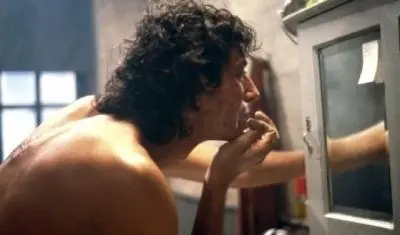
How do you face that in the morning?
The Dragonscale is a very pretty form of body horror; you get it on you and it actually looks pretty good until you catch on fire. But it did seem like you've got this stuff on your skin that you can't scrub off and that's inherently scary. And it's alive and it's bonding with your system and, to me, almost as soon as that concept had formed, I thought—yeah, pretty much like a baby. Even the Dragonscale goes through stages kind of like a pregnancy—like, it's one thing in the early going and gradually, as it bonds with your system, it becomes more powerful. And, if you're only a few hundred pages into the story, you'll find out more about that as we go along.
About body horror, I hadn't actually thought of it with the baby, together. Sticking with The Fireman, then, you were in the press saying that this is your Stand. And then I start reading the book, and I see Nick, the deaf character, and I meet Harold Cross, and I'm like, "Wait, I know those two characters—oh, okay." When you sat down and decided you wanted to do an end-of-the-world story, was The Stand very much on your mind, like almost looking over your shoulder?
No, it wasn't. I wrote about two-thirds of the book before I realized how many echoes of The Stand I had in it. When I originally wrote it, I was mostly turned on by the idea of runaway spontaneous combustion and also the idea of a guy who had some control over it. So if I had any of Dad's pieces in mind, it was probably more Firestarter than The Stand. But at a certain point, I began to see some echoes. Then the question became, what do I do? Do I embrace those echoes, or do I run from them? I always think it's better to embrace it and deal with it head-on. I read Fangoria magazine when I was a kid—
Me, too.
—and it used to make me nuts when I would read a review and, like, some guy would say, "I don't really think of myself as a horror director. I view myself as making experimental films," or something like that. I mean, Jesus, you just directed Truck Stop Massacre 4—let's not kid ourselves, here, about what's going on; it's a fucking horror movie. So, I think it's better to be loud and proud about where you came from and what you're doing and so I decided instead of running from the echoes of The Stand, I underlined them and tweaked them wherever I could. So when I realized that I had a deaf character like in The Stand, I went back and changed his name to Nick. Originally it was Travis. Harold Cross references both Nadine Cross and Harold Lauder—I forget what it was originally, but it wasn't that in the first draft. The funny thing is is that I have said that The Fireman is kinda like The Stand if I soaked The Stand in gasoline and set it on fire. But, in some ways, it's more like the Harry Potter novels.
My wife texts me—I had gotten the ARC and she'd said, "I'm reading this first—fuck you"—
[laughs]
—and she told me that, on the inspiration page, you'd mentioned J.K. Rowling, and I thought that was interesting. How were the Harry Potter novels an inspiration? Just the optimism?
When I planned the book, when I figured out the way the book was gonna flow, I realized that it was basically a Harry Potter story.
So, here's the plot of six of the Harry Potter novels: you have a hero who is in a miserable domestic situation, and something about the hero marks him out as strange or different. Eventually the hero escapes to a refuge full of strange people like him. In this place, the hero makes friends and enemies, begins to learn new skills and is faced with a series of mysteries, a series of puzzles. Each of the mysteries and puzzles is resolved with an escalating sense of confrontation that forces the hero to fall back on the love of his friends and on the new powers and abilities that he's absorbed in this refuge, this place of shelter. That's the Harry Potter story, book after book for six books.
But it also describes the plot of The Fireman. Harper is coming from a domestic situation—in this case it's her deeply unhinged husband, who's threatening her life. She's been marked out as different and strange, not because she has magic but because she has Dragonscale. She goes to a place where there are other strange, different people, like her. In this case, not Hogwarts but Camp Wyndham, where she makes friends and foes alike, and there are a number of unresolved mysteries, such as who's that thief, and some other mysteries. We know there's a powerful—one might say, wizardly—figure in The Fireman, who might be able to teach Harper something. And so the book goes.
I love those Harry Potter novels, and I felt very good about being able to use them as a series of lampposts to help me find the way to end of my own book. So the structure of the books is similar. I'm not sure that, when people read it they'll see the scaffolding that I see. The similarities between them are not very obvious on the surface. But I see those similarities and I find them very reassuring.
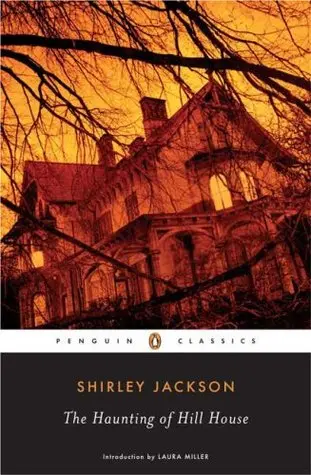
So we have The Stand, we have J.K. Rowling, and was Emily Waterman's cup of stars related to [Shirley] Jackson?
Oh, yes-yes-yes. Well, y'know, the other thing is that I've never able to write anything that wasn't just, like, a festering pool of my own influences. And I always feel like, in some ways, that my books are conversations with, and arguments with, the stuff that I love. Y'know that thing about the cup of stars in The Haunting of Hill House is one of my favorite things in all of American lit—
Because it's an encapsulation of the narcissism in Eleanor; it's so innocent, there's no ill-intent in it; she's just like, "Me, too!"
[laughs] Right! "Me, too!" [laughs] I just love that, I just think it's a beautiful piece of writing, so it's impossible for me to give a child a cup without it being a cup of stars. All this stuff rattling in my head. It's like Beatles and Stones. I think every single book has had some sort of discussion of Beatles and Stones. I can't help it. I'm a big British invasion guy. Even now, I pretty much listen to Beatles and Stones 50% of the time. The other 50% of the time it's Kinks, Small Faces, Faces, Led Zeppelin. I tend to find myself hanging back to that stuff, over and over again. So it comes out in the books because that's my frame of reference. But, most people seem to like it, rather than be annoyed by it, so I'll take it. So, that's good. [laughs]
You always have to have a weird balance. But, you seem to be saying, it's important to acknowledge where you're coming from.
Yeah, that's right, that's right. So much of my own writing is a result of the guys, the people, the writers and stuff, that turned me on. I don't want to tamp down on that enthusiasm; I want to feed off that. It's story-fuel, that excitement, feeling like I'm reflecting on this stuff that I love is one of the ways I keep myself pumped up. I keep it interesting. And, another thing is—I've said this to other people—is that I sometimes care more about my own reading than my own writing. I'm always confused by writers who say, "Oh, when I'm working on a book, I stop reading fiction."
I'm ALWAYS working on a book. If I stopped reading fiction when I was working on a book, I'd never read fiction. And reading fiction is why I do this because I love reading make-believe worlds. Give me an 800-page book with a wizard waving his wand around, and I'm in hog heaven. Give me some orcs to cut apart, and that's great.
Maybe some people fear that the reading of other people's work might start bleeding into their style, and their style is so fucking precious. You don't seem to be worried about that, though.
Well, I will say, when I'm working on something with a very specific subject, I'll avoid stories on that very specific subject. So, I wanted to read Station Eleven for years now, since it came out, sounds wonderful, but I haven't read it because I know it's a plague novel, and I didn't want to read about a runaway virus while I was working on a book about a virus. I didn't read books about ghosts—I love a good haunted house story—when I was working on Heart Shaped Box. I'm still reading fiction, I'm still reading pretty widely. If I have a specific subject I'm working on, I'll avoid that specific subject. As far as worrying that my style will slip away because it will be overwhelmed by someone else's style—I kinda almost feel that would be wonderful if I could do that; I'm sort of stuck in my voice. Every time I write a sentence, that just feels like me. And, also, I'm so slow—it takes me three years to write a novel, everything's been rewritten and rewritten again, that, by the time I'm done, it all just kinda smells like me. I have no idea what I was reading when I wrote what.
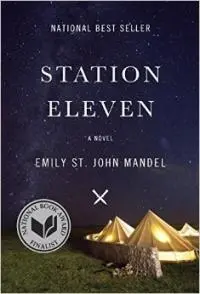 The one exception to not reading stuff on certain subjects, I will read nonfiction. That's different. That's research. So I read a lot of nonfiction on the Devil while I was on Horns, for example. I read a surprising amount about rebuilding motorcycles while I was working on NOS4A2—which is funny, because in the end, none of that stuff is in there. I learned a bunch about it, but we rebuilt the Triumph off-screen.
The one exception to not reading stuff on certain subjects, I will read nonfiction. That's different. That's research. So I read a lot of nonfiction on the Devil while I was on Horns, for example. I read a surprising amount about rebuilding motorcycles while I was working on NOS4A2—which is funny, because in the end, none of that stuff is in there. I learned a bunch about it, but we rebuilt the Triumph off-screen.
Don't you hate that? I kinda gotta know what I'm talking about so I don't get lost in the details, so you do all the research, and you write the story, and it doesn't fit what the fuck you're talking about.
I read and learned a lot about archery because in early drafts of The Fireman, archery figured in prominently. Almost none of that stuff is in the book, anymore. I'm kinda a little secretly suspicious about research; it seems like that almost ALWAYS happens. Y'know, the only valuable research I've really done was research I'd done years before I wrote the book. It's almost like you don't really remember where you learned that stuff from, anymore. There's a lot of bizarre rock 'n' roll trivia in Heart Shaped Box. Well, I read Rolling Stone magazine for twelve years. I didn't think I was researching Heart Shaped Box; I was just reading Rolling Stone because I really liked it.
We were talking about stories and the assimilation of styles and you were, like, "Ah, it would be great because I'm always in my head, in my voice." Do you remember a moment, when you were starting, you wrote a scene, or a story, or even a paragraph that this is YOU, this is MY voice, this is what I want to sound like, that you just felt so proud of?
Well, the first story I wrote where I felt really excited about what I had accomplished was "Pop Art", but I'm not sure that's the right answer to your question.
I think that the first time that I felt really energized and felt like, "Oh, this is how I want to sound, this is how I want to write" was when I was writing "20th Century Ghost". Alec Sheldon is the main character and he's lost his brother in World War II and he's unhappy. He doesn't go to school; he spends his mornings skulking around downtown. And, eventually, he breaks into a movie theater. He sees some of Fantasia and that's where he meets a ghost. And that whole scene—him downtown, him going out to an old factory and breaking windows, him breaking into the movie theater, and then the conversation he had with the ghost—I wrote that with tremendous excitement. I don't think I had to rewrite it very much, either. I really did feel like, I've got a sound here that I like. But maybe I didn't think about that when I was writing it. Maybe it was only in retrospect, I started to feel like there's a sound here that I'm happy with; this is something like the way I want to sound.
There was a New York Times piece that said you had kept files of rejections. This is now ten years since 20th Century Ghosts—eleven years in September—do you still have those? Do you still keep those, like "This is where I came from" kinda thing?
I have a bunch of them; I have a file cabinet with heaps of rejections, mostly on unpublished stories. Once I figured out what I was doing, several of those stories sold fairly quickly. I had better luck in England than I had in America almost always. To this day, a lot of times I feel that my community is the community of English fantasy writers—maybe even a little bit more than America. Here, in America, I feel like my community is comic book writers. Whereas, in England, I feel an affinity for a lot of guys like Mark Morris and Adam Nevill; a lot of fairly young fantasy writers, horror writers, who came up at the same time as me.
I was able to sell a number of stories to fantasy magazines in England. In America, when I sold stories, I generally sold them to literary magazines. I had two kind of letters I'd write: when I was sending a story to a genre magazine, I'd say, "Here's a great tale of fantasy or horror"; when I sent to a literary magazine, I'd say, "Here's a great tale of magic realism". They'd always be the same story—they just had different cover letters.
That's funny because when I was starting out, I was doing the same thing. I don't know if you follow Standard Manuscript Format, but they say to put the genre under the word count in the upper right-hand corner. And, depending on the magazine or venue, I would say this is a sci-fi story, or this is a magic realism story, or this is a thriller—because there was a period there, at least in the short fiction market from 2010 to 2012 where you don't say "horror", you say "thriller" because we're trying to be accepted—like you're putting your tuxedo jacket over a band tee-shirt: This is a coming-of-age story that deals with a psychotic murderer in a hockey mask.
Right! Exactly! [laughs] This is a story of young love, right? This is a story of teenagers discovering themselves and their sexuality, against the backdrop of a lonely camp in Pennsylvania where there also happens to be a rather large man with a meat cleaver—
[laughs] Right, right!
—who really hates teen sexuality. [laughs] Yeah. I did, however, write a number of stories that I was never able to sell, and those did most of the work of collecting the rejection letters. I remember I wrote a story—I can't completely remember what it was about—but the title of the story "The Entire Weight of Tacoma", and Tacoma was actually a cat, and Tacoma was the heaviest cat in America, he was in the Guinness Book of World Records, and it was something about how he represented this woman's guilt, or something like that.
That sounds—
—That sounds really bad, right? I don't think it was a very good story; it might've had some nice writing in it—
Good title. I love the title.
It was an okay title. I remember, I wrote a story called "Undefeated" that I always thought wasn't that bad a story, had some good stuff in it. But, like, "The Entire Weight of Tacoma" probably wound up being sent to 30 markets before I quit, and "Undefeated" probably collected 30 rejections. I had a whole string of stories that I would generally send, starting with the New Yorker and Atlantic Monthly and work my way down until I was finally down to the Duluth Literary Quarterly. At a certain point, despair would send in and I'd just say, "Well, I'm not wasting any more stamps on this shit." I remember seeing C. Michael Curtis at the Atlantic Monthly return a few stories with personal replies and that gave me a little bit of hope. There were a couple stories that he said very kind things about. Later I found out that he was very good about doing that. He encouraged a lot of young writers. When you think about how many submissions the Atlantic Monthly must've been getting every day, but, still, he'd wade through and pull a couple stories out, read them the whole way through, and offer a one-sentence comment or something that was a little better than "Sorry, we're passing."
When you were starting out, did you have that thing—maybe it was a rejection, maybe it was an editor sending you an e-mail after a publication saying, hey, we really enjoyed this—where it was motivating enough to say, this wasn't terrible and it's enough for me to keep going?
I had that quite a few times, especially from the Atlantic. I remember I'd sent them a story that I was very proud of. This was pre-cell phone. I was at the post office, and I'd gone to see if I had any stories, any rejections. Normally when I'd get a rejection, they'd send me back my manuscript in a stamped, self-addressed envelope. I mean this is old-school; this is pre-electronic submission. So they'd send me back my old manuscript, usually with a form rejection. Well, I went to the mailbox to see what I had and instead of my story coming back to me, there was a crisp white envelope from the Atlantic Monthly.
Oh shit.
And I thought, "Oh my god—that contains a check. They bought one of my stories." I remember rushing to a payphone. I was married at the time and I called my wife and I said, "I think the Atlantic just bought one of my stories." And she was excited, I was excited. I said, "Listen, I'm gonna rip it open. I'm gonna read you the letter right now!" I ripped it open and it said, "Sorry, we decided to pass on your latest submission"—it was a form rejection.
[laughs]
[laughs] And someone had written across the top, "Oh, by the way, we lost your manuscript."
And you were on the phone with your wife at the time?
That was the lowest of the years I was struggling to sell stuff, and get going, and find a voice, and figure out what the hell I was doing—that was definitely the lowest moment. I never had a bigger kick in the nuts than that.
And it's only something you can laugh at YEARS later.
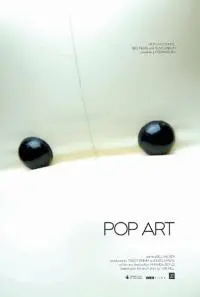 Oh my god—[laughs]—now it's hysterical. We both got so excited. Like, "Oh my god, I'm gonna open it!" and she said, "Open it, open it!" And I'm like, "I'm gonna open right now! I'm gonna READ IT TO YOU!" [laughs] I tear it open—badly photocopied form rejection. Little note on the cover: "Oh, sorry, we lost your story."
Oh my god—[laughs]—now it's hysterical. We both got so excited. Like, "Oh my god, I'm gonna open it!" and she said, "Open it, open it!" And I'm like, "I'm gonna open right now! I'm gonna READ IT TO YOU!" [laughs] I tear it open—badly photocopied form rejection. Little note on the cover: "Oh, sorry, we lost your story."
That's brilliant.
Anyway...but like, with "Pop Art", when I started to figure out what I was doing...the funny thing is, with the stories in 20th Century Ghosts, most of those were pre-sold. Some of them were original to that collection, had never been published elsewhere, and they were relatively new. Like with "The Cape", I'm pretty sure that was published for the first time in 20th Century Ghosts. Of the ones that WERE published [before], like "20th Century Ghost" and "Pop Art" and "Better Than Home" and a few others, like "Abraham's Boys," those sold pretty quickly. A lot of those stories tended to only be seen in three or four places before someone wanted them. "Pop Art" was only turned down three times before I sold it to an anthology of Jewish magic realism. "Abraham's Boys" was written for the Van Helsing and it sold to that collection—thank god, because I don't know where else I would've sold it. There just wasn't an enormous market for Van Helsing teen fiction.
I think maybe "Best New Horror" racked up four or five rejections before PS Publishing bought it. But I was always kind of confident that I would sell that one. I think I started with some literary markets I admired; I had this crazy idea that maybe a literary magazine would publish it as sort of like alternative programming. But I felt like, "Okay, Andy Cox's Third Alternative or someone will buy this thing and I'll find a market for it."
It's funny you mention "Better Than Home"—it's one of your oldest stories published, it's not the first—
Yeah, it's like 1997, or something like that—
—But it's the most mainstream. The only other one that is slightly similar because of the literary elements is "In the Rundown". But "Better Than Home"—it FLOWS with the collection. But it's so different than the other pieces. And you had other stories around that time published as well. What about THAT story, if you can recall—and this was ten fucking years ago—
I think the thing is—when I was in college, I made two decisions (and I've said some of this in other interviews, so I apologize if I'm repeating myself)—I knew I wanted to be a writer and the first thing I decided was that I wasn't going to be Stephen King's son, so I dropped the last name because I wanted to be sure when I sold a story that I sold it on its own merit. So that's the first thing. The other thing I decided was, well, my dad writes horror and fantasy, I'm going to write literary fiction. I'm going to write the kind of stories that are in the New Yorker and Atlantic. So I started writing stories about divorce and mid-life crisis and raising difficult children.
The problem with that was that I was a young dude in my twenties and I had never been divorced, so I couldn't really write about it with any authority. I hadn't had children yet, so I didn't really know anything about parenting. I was too young to have a mid-life crisis, so I couldn't really write about that with any authority. And furthermore, I didn't read the New Yorker or the Atlantic Monthly because I wasn't all that wild about that kind of fiction. I could not have designed a better strategy for failure. When I was growing up, I loved comic books, I loved Fangoria magazine, I saw Dawn of the Dead over and over again. That was the stuff that I loved.
So, for me, when I started writing—after four or five years, I wrote "Pop Art" as a work of literary fiction, but it was magic realism. Let's face it—it was a basically a fantasy story, a weird fantasy story. And I had FUN writing that, it was very freeing, and I started to experiment more and more with strange fiction, with weird fiction. But I did write a lot of literary stories, and most of them were dull and unsatisfying. They might've been well-written, but they didn't have a lot of interior life to them. "Better Than Home" was the one exception, so that's why it's in the collection. It's like the broken clock that's right twice a day. I may not have been able to write those kind of stories at that age, in that moment of my life, but I did do it over and over again, and eventually I got one right.
There was an old interview with Paula Guran and you said "Best New Horror" was your manifesto, it was a response to the torture-porn fad that had come up. I kinda read it like a 2005 version—this is going to sound weird—of Cabin in the Woods.
[laughs]
Like, you have to know all the tropes to understand the story and get the story. Do you still see it as relevant now? Or as a manifesto?
The funny thing is that I've never really liked torture-porn, but to be fair, I've probably not seen a lot of it. I always stayed away from Hostel because I thought the whole thing looked odious, but I was talking to someone the other day who said, "You really oughtta check it out; it's actually a pretty good film." I thought Saw was kind of silly. I mean, I hate to break this to you, but this isn't how serial killers work. It's both scarier and a lot more dismal than this. I thought that the torture-porn stuff was almost explicitly without empathy and that bothered me because I don't feel like you can be scared if you don't have empathy for the person who is under threat. I never want to be in a situation rooting for some demented serial killer to claim the life of another victim. That feels odious. Like, that's not who I want to be. I mean, Nightmare on Elm Street is a really terrific '80s horror film. It's really genuinely frightening.
Oh, the first one's brilliant.
Even still. Even as dated as it is, it's still very scary. One of the reasons it's scary is because you like those teenagers. You have teenagers who are appealing and feel like real kids, not like fake-movie kids. And so, anyway, that's where I was coming from with "Best New Horror" and I think it dates pretty well. It's been a while since I read it, though.
Around Heart Shaped Box, 20th Century Ghosts time, you talked about it a lot. A lot of people were asking because it is a very tongue-in-cheek, "Heeeere's horror!" piece to start a collection with and to play with audience expectations.
And it’s also a little bit of a boast, a bit of a brag, like "'Best New Horror'! Here it is! Right here, baby!"
But Eddie Carroll, if you've worked in the trenches as an on-spec writer, Eddie Carroll you can immediately identify with; you know an Eddie Carroll at some point.
Well, Stephen Jones, who publishes Year's Best Horror, he in particular loves that story because he was sort-of the accidental inspiration for "Best New Horror". He had published "20th Century Ghost" in his best-of collection and not long after it came out, he sent a mass e-mail to all the contributors, saying he couldn't find the address and information of one of the writers in the book. He wanted to know if any of us knew how to get in touch with him. I immediately thought, "Holy shit, this is a horror story. This is great. This search for this lost horror writer? This horror editor trying to find this horror writer? You don't want to find this guy, dude! What are you doing?" So I wound up writing "Best New Horror". Now, here's the kicker—Stephen Jones swears he never sent such an e-mail, and no one who was in that collection remembers getting it except for me.

That's bizarre.
Mmm-hmm. He swears to this day, he's like, "Are you kidding me? You think I wouldn't know how to get in touch with a guy that I bought a story from? Of course I know how to get in touch with him; I know how to get in touch with all of them, because it never happened." And I've never been able to find anyone who remembers getting that e-mail except for me.
You started off writing novels and then you switched to short stories—you'd said at one point to learn the form. But that was the first thing that came out and your agent said it was going to be a difficult sell. I'm interested in why you focused on selling the collection instead of just writing another novel, like maybe writing Heart Shaped Box at the time.
I didn't focus on writing a novel because I sort of lost hope on ever publishing a novel. I didn't think it was going to happen. But I got these short stories, I got at least a dozen short stories, and I'm still writing new ones, maybe I can get a collection out somewhere. I felt like if I published a collection of short stories and then went into comics...the years I spent writing novels that I couldn't publish, racking up rejection letters, they wouldn't be completely wasted. I would have this one collection of stories to take pride in.
So I did have these stories and I was kinda desperate to sell the collection somewhere. It didn't sell in America. It didn't sell in England and then I was able to place it with Pete Crowther at PS Publishing and that was pretty awesome. It was a classic case of putting the right material with exactly the right editor, because Pete wrote those kinds of horror stories. He had published collections of them himself. He responded to that with "This is what I do."
A kindred spirit.
Yeah. And I think isn't that always the story when you sell something? It's always a matter of placing the right material in the hands of someone who's completely ready for THAT. It perfectly scratches their itch.
That they didn't know they had.
Yeah, right. If you do that, you have a sale, and any other situation, you have a rejection notice.
I mean, that's the thing with being on-spec is you're hoping you scratch someone's itch, but they don't know they have an itch, and you have to convince them they have an itch, and you're scratching it.
Mmm-hmmm.
You burst on scene with 20th Century Ghosts and Heart Shaped Box, but now you're a reliable established artist. Like, people see, oh, this is a Joe Hill novel; they know they're going to get something good. Do new writers come to you for advice and words of wisdom, and how comfortable are you with that?
Well, I guess first of all, this is the first book where I started to feel like, "Okay, I'm still here." Like, I guess I feel like not completely sure the whole career is going to dry up. Because I definitely think for the first ten years, I always felt like that any moment, it would all stop. I've always been a sort of insecure dude, and I always felt like that any minute all of this good stuff that's happening with the stories could dry up on me. In terms of giving advice—I had a chance to work with some really great young writers, I was part of the Clarion West program. I've done some work with Jason Ciaramella, who adapted some of my short stories into comic books. He's a terrific young comic book writer. But I don't know if I've ever said anything useful.
Not necessarily that it's useful. Like, you strike me as a very down-to-earth kinda dude. You can just get down and chat about pop culture. But when you reach a certain a level, you're seen as "Ah, you're Joe Hill," or, "Oh, you're Jeff Vandermeer"—and I always find it interesting if the person feels comfortable DOING it.
I'll tell you what; I've seen people get really weird around my dad. I don't think me or Jeff Vandermeer or John Scalzi—we're sort of successful at exactly the right level, which is sort of like Internet-famous. And people see us as very approachable and not weird, not like J.J. Abrams. We're definitely coming across as, y'know, normal dudes. Not-scary.
Not like the Delphic oracle.
[laughs] Totally! Totally! I do think it's really natural—like, here we're doing an interview where there's a lot of talk about process and people are going to read the interview who are young writers and hoping to take away some useful information. And I do think that's a good practice, that reading what writers have to say, and what they have to say about their own process, IS useful.
It's always struck me as that's true, and that's almost half of an equation. Like, yes, you have to read, but then you have to DO it, and then fuck up. And fuck up BADLY, like, "Oh, maybe DON'T do that again."
That's awesome. Actually, THAT—if one thing is key, it's acceptance of your own fuckups. It's fucking up again and again and accepting that that's actually a really productive part of the process. I sometimes think of it as a string, an endless tower of fuckups, and when you get done, you can go, "Oh, good, now I finally know what I have to do to make this book work." And then you start getting it right in the second draft.
You start nailing it down. I'm a massive over-writer and it used to really fucking bug me. It took years to get it down to a point where, oh, this feels very tight. But you have to come to terms with—okay, you're going to overwrite how this guy picks up a cup of coffee. It's okay.
Right. Totally, totally. Most of my paragraphs, there are only a few sentences in each paragraph. But that's not how it is in first draft, or second draft, or even third draft. I'm paring it down draft after draft. In first draft, that four-sentence paragraph was probably two pages long or a page and a half—and then gradually I whittle down to what's the fewest number of sentences I can have that'll still deliver the effect that I want. And it can take five drafts to get that right.
Right—it's like you have five sensory details in that first draft, and you go through and pick the one that resonates the most. Or gives the clearest picture of what you're trying to convey.
Seriously—it almost always turns out to be the shortest sentence in the paragraph.
I know, right?
You've got five or six endless sentences and then you've got this one sentence that's, like, five words long, and you're like, "Oh, it was that."
It always kills me because you'll have these beautiful sentences and the sensory details are there, the rhythm's there, but it's the shortest, most—and I'm not knocking Hemingway—most Hemingway/Steinbeck-esque sentence in the paragraph that drives it home; the one that people go, "Oh—that, that. That one right THERE."
You feel it in your bones, where you're, like, this is the one that has some impact to it.
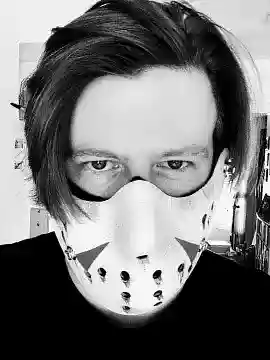
About the author
Paul Michael Anderson is the author of the collections BONES ARE MADE TO BE BROKEN and EVERYTHING WILL BE ALL RIGHT IN THE END, as well as the novellas YOU CAN'T SAVE WHAT ISN'T THERE, STANDALONE, and HOW WE BROKE (with Bracken MacLeod). He currently lives in Virginia.
